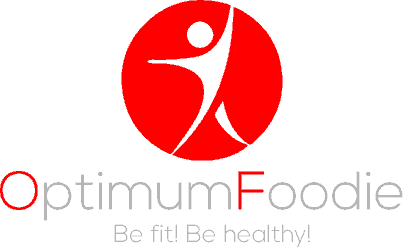Most of us have used at least one medication at one point in our lives. Many of us have used quite a number of medications at some point while some us will be using medications for the rest of our lives. With medication use comes the risk of medication errors. A variety of things can go wrong with medication use, these errors are called drug therapy problems (DTPs).
So the question is, who should be monitoring these probable problems? It is the role of your pharmacist to detect, resolve and prevent these problems, with the collaboration of you and your physician.
It is through Medication Therapy Management (MTM) that your pharmacist is able to perform this function. DTPs can include the following:
- Over- and under-dose
- Wrong drug
- Drug interactions
- Need for additional drug therapy
- Unnecessary drug therapy
- Adverse drug reaction
- Inappropriate compliance
Let’s take this one at a time.
Over- and Under-dose
this is just basically a situation whereby you consume too much or too little of the right drug. In this case, you are using the right drug, but the dose either is not enough or excessive. These can lead to inefficacy, worsening of your condition or developing new conditions and adverse effects. By providing MTM, the pharmacist can provide a second set of eyes between your doctor’s appointments, to monitor your condition, and detect this. The problem, alongside suggestions to its resolution can then be relayed to your physician.
Wrong drug
This can occur in a number of ways:
- you are given the wrong medication to treat a condition.
- when you mistakenly mix up your medications. It could be because they look alike or their names sound alike.
- there is drug that is more effective or safer than the one you are currently using.
Drug interactions
This is simply a case where by your drug interacts with another drug, food or a disease condition, in a way that is harmful to you. Based on these different interactions, you can have:
- Drug-drug interactions
- Drug-food interactions
- Drug-disease interactions

Drug-drug interactions occur when using two drugs, for example Drug A and B together, results in:
- Drug A cancelling the effect of drug B
- Drug A reduces the action of drug B, reducing the effect of B in your body
- Drug A increases the action of drug B, resulting in the harmful effects of an overdose.
Drug-food interactions, what we eat and drink can affect how your drugs work in a number of way:
- decreased absorption of the drug. An example is taking glipizide (a drug for diabetes) with food; it results in a lesser amount of the drug getting into your system and thus poorer glucose control. Glipizide should be taken 30 miniutes before a meal.
- increase in the amount of the drug in your blood, resulting in excess effect or new or worsened side effects. An example is the interaction between grape fruit and atorvastatin (Lipitor®, a cholesterol-lowering drug) or felodipine (Plendil®, a drug for blood pressure).
Drug-disease interactions occur when a drug is being used by an individual with a disease condition which requires the avoidance of that drug in particular. For example if you have kidney problems, you must avoid certain drugs and even supplement. If you are diabetic for example, based on the severity of your kidney problem, you might be unable to use drugs like Glucophage®, Galvus®, Daonil®; you might need to avoid some over-the-counter drugs like ibuprofen, diclofenac used for pain.
Need for additional drug therapy
This occurs when you need additional medications to properly manage your health condition(s) or to take care of certain symptoms you might be experiencing.
For example, you might be in need of additional drugs for your blood pressure, if your blood pressure isn’t well controlled, and you optimized other options. You might also benefit from the addition of certain supplements to your regimen
Unnecessary drug therapy
This is a situation whereby you use a drug which serves no purpose or used to serve a purpose but is no longer necessary in the management of your health condition or symptom you were experiencing.

It occurs commonly, when you self-medicate. It can also be an error in prescribing by the physician or a situation whereby you were formerly prescribed a drug, but after the reason for the drug resolved, the drug was never discontinued.
Adverse Drug Reaction (ADR)

This can be described as a harmful or unpleasant reaction resulting from the use of a medication. Depending on the severity or tolerability of the adverse effect, there might be need to:
- reduce the dose or
- stop the medication and change to something else if necessary or
- treat the adverse effect with another medication, if there isn’t a suitable drug to change to
Inappropriate compliance
Compliance refers to the way you use your medications, that is, the frequency and how you consume it. Many factors can contribute to you not properly complying with your medications. Factors can include:
- experiencing an adverse effect
- high cost of medications
- lack of education about how important the use of the medication is
- forgetfulness
- a lack of communication or miscommunication, about how to use the medication to get the best results.
Drug therapy problems are common, considering the immense pressure on our healthcare system, and unfortunately many of them go undetected.
If you are managing a chronic condition that involves you using medications for a really long time, you should get a pharmacist to do a complete Medication Therapy Review (cMTR) at least once a year. Pharmacists also conduct targeted MTRs, in between, to resolve a particular problem that might come up.


Thanks so much for your educative write ups concerning healthy living and good use of medication. May the good Lord enlarge you in practical knowledge and understanding. Once again, thank-you.